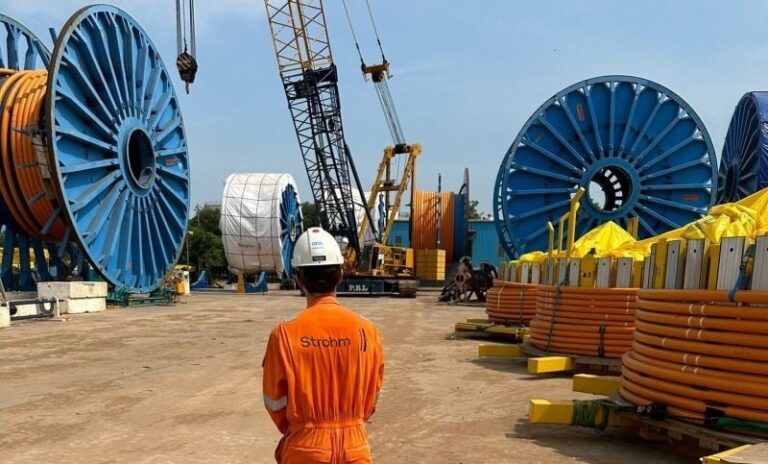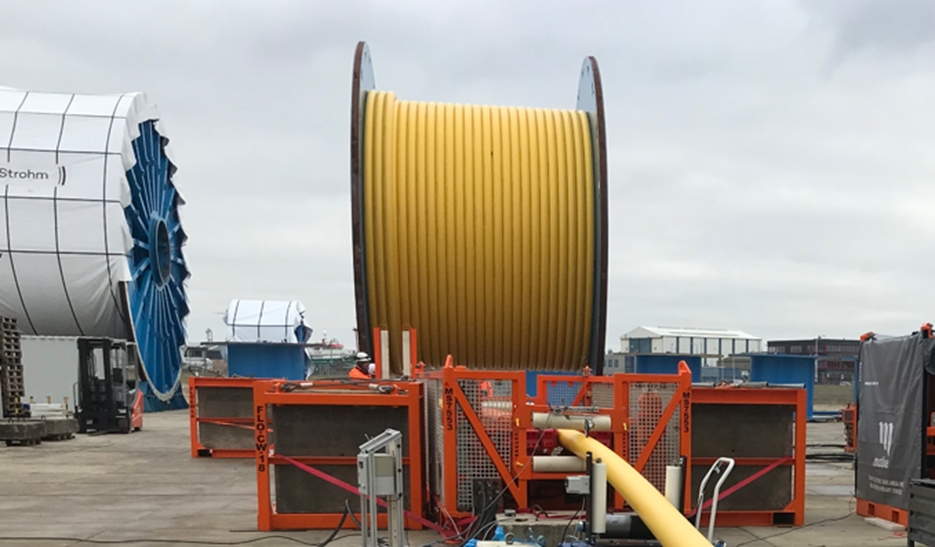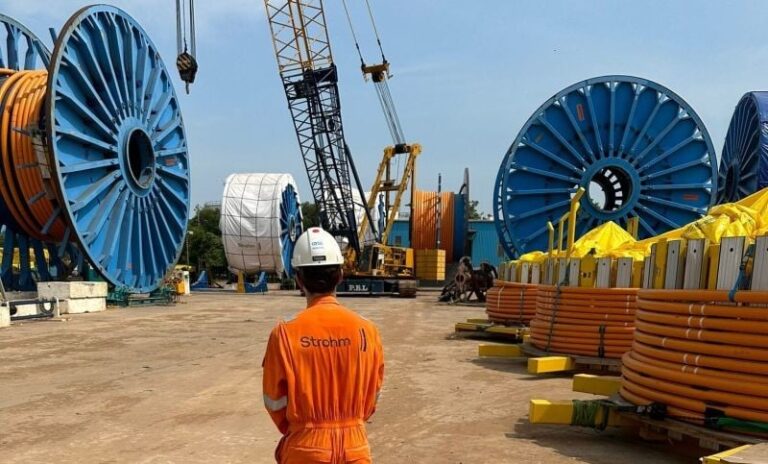Dutch thermoplastic composite pipe (TCP) technology player Strohm has picked up the largest commercial award for pipe supply in its 16-year history, thanks to a new contract for an oil development off the coast of Guyana with ExxonMobil Guyana Limited, a subsidiary of the U.S.-headquartered energy giant ExxonMobil.

The Netherlands-based manufacturer’s latest TCP ‘jumper on demand’ contract is for the supply of TCP for the Whiptail development, which is ExxonMobil’s sixth project in the Stabroek block offshore Guyana. A final investment decision (FID) to develop the project was made at the end of last week upon the receipt of all regulatory approvals.
Strohm’s new contract brings the project count for work with the U.S. oil major in Guyana to three, following previous awards for the Yellowtail and Uaru projects. The jumpers, which are made of carbon fiber and PA12 polymer, will be installed at water depths over 1,600 meters. These jumpers will operate in the region of 10,000 psi. The use of TCP is expected to enable ExxonMobil to slash the CO2 footprint of its pipeline infrastructure.
Gavin Leiper, Strohm’s Vice President of Americas & Global Field Services Group, commented: “This latest award brings us to a total of over 70 jumpers across three developments in Guyana’s Stabroek block. Not only is this our largest award to date, but it also means we will be terminating TCP and supporting ExxonMobil Guyana and its co-venturers for at least the next 5 years under our field service group contract. We look forward to deepening our relationship with ExxonMobil Guyana and our Guyanese partners through the delivery and execution of the scope for Whiptail.”

Once the TCP for Whiptail, which will be used for water and gas (WAG) injection, has been produced at the Dutch firm’s manufacturing facility in the Netherlands, the technology will be supplied to ExxonMobil in a single, continuous length along with associated pipe handling equipment. Strohm explains that this concept and delivery method allows the individual 24 jumpers to be cut to the desired length, terminated, and tested onsite in Guyana, providing flexibility to the end user.
The development concept for the Whiptail project, which covers the Whiptail, Pinktail, and Tilapia fields, along with potential additional resources should they be feasible and economically viable, entails drilling operations to produce oil from around 40 to 65 production and injection wells. The $12.7 billion project, which has an expected field life of at least twenty years, is anticipated to come online in 2027.
Strohm is not the only company that has been recently hired for the Whiptail project, as SBM Offshore is in charge of front end engineering and design (FEED) work for the FPSO Jaguar, which is destined to work on the project, Saipem is tasked with detailed engineering, procurement, construction, and installation (EPCI) of a subsea production facility, and TechnipFMC is responsible for the supply of subsea production systems.
Covering 6.6 million acres or 26,800 square kilometers, the Stabroek block is operated by ExxonMobil with a 45% interest. The company’s partners in the block are Hess Guyana Exploration (30%) and CNOOC Petroleum Guyana (25%).
Strohm has collected several new achievements lately. At the end of last year, the Dutch player received DNV qualification for its deepwater TCP flowline, claiming to be the first company to receive such accreditation from the verification body.
In the aftermath of a TCP hydrogen testing program, the firm outlined that TCP showed exceptionally low hydrogen permeation values, demonstrating technical suitability for high-pressure hydrogen service.


Leave a Reply